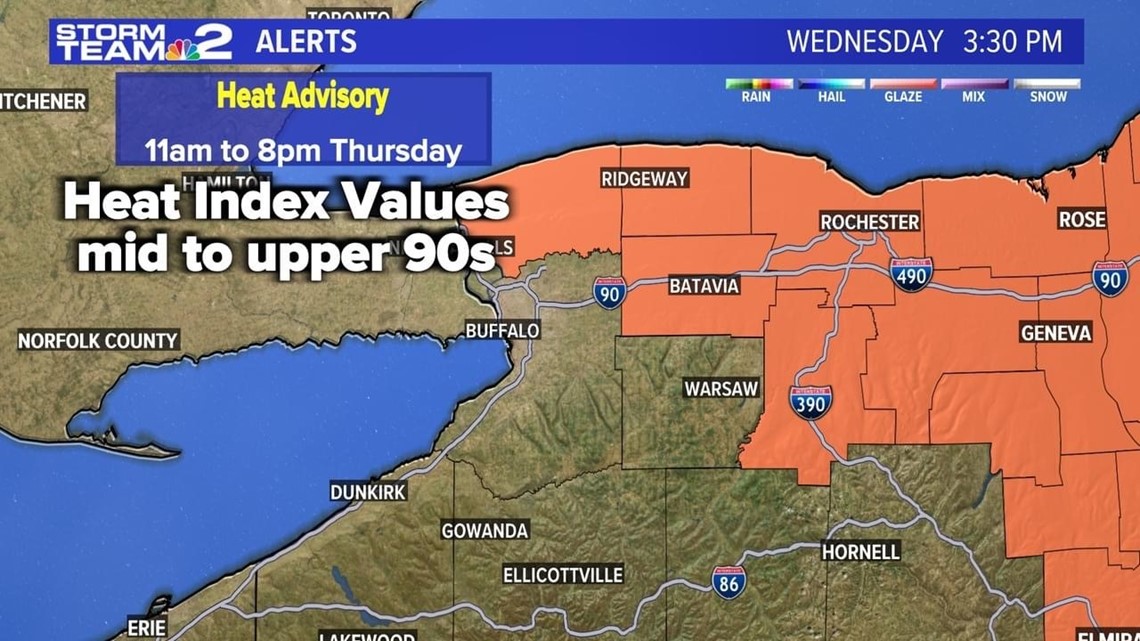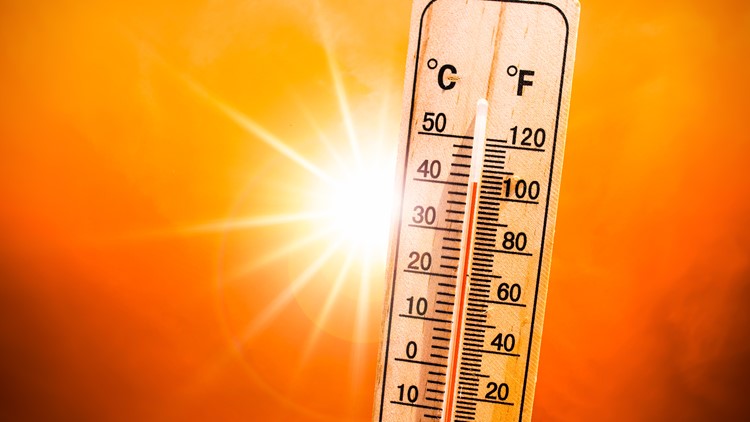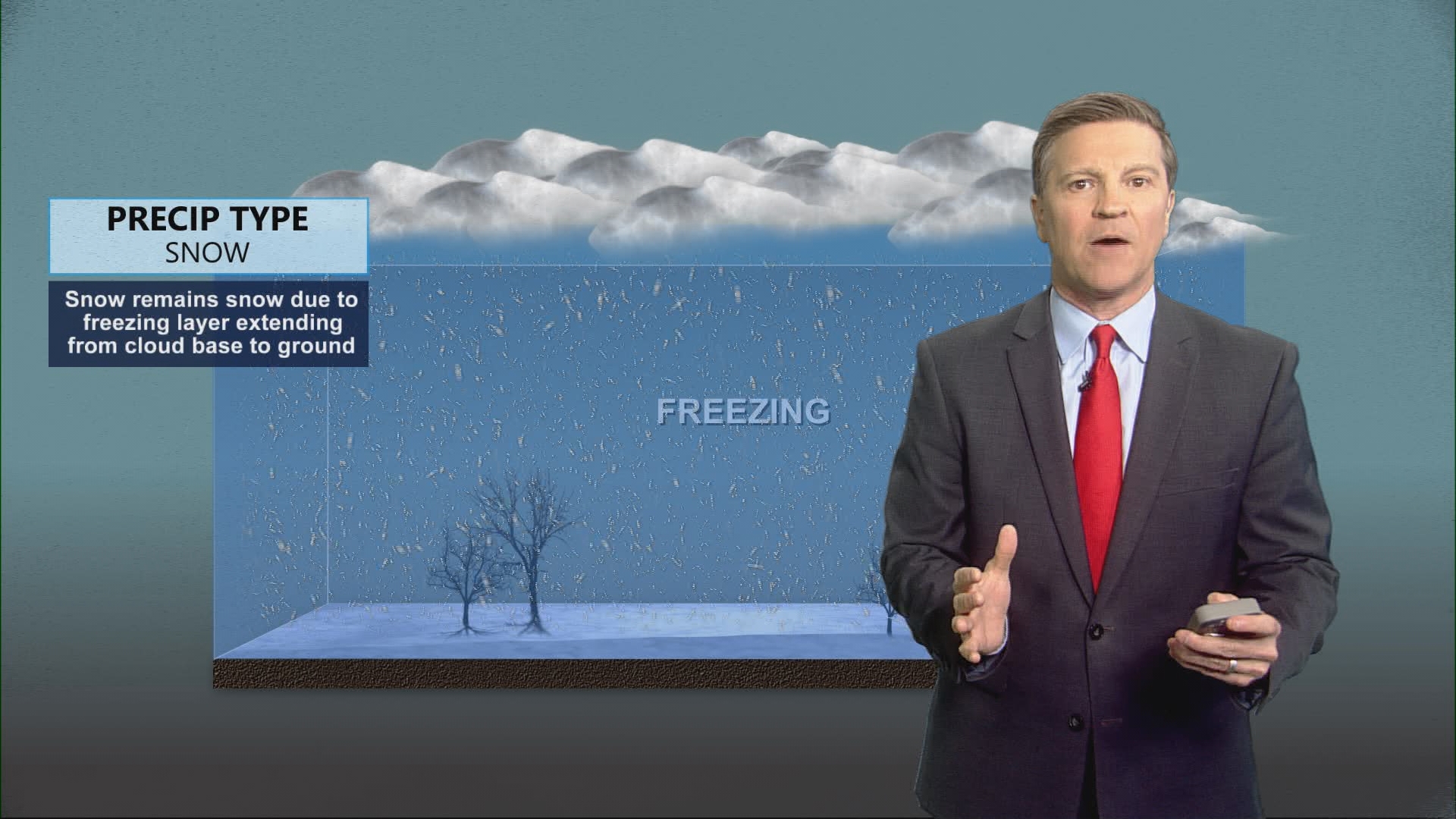BUFFALO, N.Y. — A Heat Advisory for Niagara, Orleans, and Genesee counties until 8 p.m. Thursday evening was allowed to expire.
High temperatures on Thursday made it into the low 90s for many spots including Buffalo (third day of 90s so far this summer!). Some areas had heat index values in the mid 90s.
The high temperatures and humidity may cause heat illnesses to occur.
Health officials recommend drinking plenty of fluids, stay in an air-conditioned room and stay out of the sun. You should wear lightweight, loose-fit clothing.
They also suggest checking up on your relatives and neighbors.
If you have to be outside, you should plan any strenuous activities for early morning or in the evening. Those having to work outside should take breaks in a shaded area or an air-conditioned environment.


Extreme heat could cause heat-related illnesses, like heat exhaustion or heat stroke.
What are the signs of heat stroke?
- Hot, dry, red skin
- Rapid pulse
- High body temperature ≥ 105°
- Loss of alertness
- Confusion
- Unconsciousness or coma
- Rapid and shallow breathing
Here are tips from the New York State Department of Health on what to do if you or someone else is suffering from heat stroke.
- Call 911 immediately.
- Cool the person quickly.
- Bring to a cool place and use a cool bath or sponges, fans, and AC.
OR - Wrap ice packs in cloth and place on the neck, wrists, ankles, and armpits.
OR - Remove clothing and wrap the person in cool, wet sheets.
What are the signs of heat exhaustion?
- Heavy sweating
- Fainting
- Vomiting
- Cold, pale, clammy skin
- Dizziness
- Headache
- Nausea
- Weakness
Health officials say if someone is experiencing heat exhaustion, you should move the person to a cool place, loosen clothing and apply cool, wet clothes to their face, neck, and arms. You should also have them sip water slowly every 15 minutes up to a quart of water.
Who are susceptible to a heat-related illness? According to the NYSDOH:
- Older adults
- Young children
- People who are overweight/obese
- People who do not perspire normally
- People with some chronic medical conditions such as a history of dehydration, heart problems, and respiratory or lung problems
- People who work outdoors or in hot settings
Here are tips from the health department to keep cool during the heat advisory:
- Use air conditioning to cool down or go to an air-conditioned building.
- If you don't have air conditioning in your home, open windows and shades on the shady side and close them on the sunny side to try to cool it down.
- Drink plenty of fluids but avoid alcohol, caffeine, and sugary drinks.
- Beat the heat with cool showers and baths.
- Take regular breaks from physical activity.
- Avoid strenuous activity during the hottest part of the day (between 11 a.m. and 4 p.m.).
- Wear loose, lightweight, light-colored clothing to help keep cool.
- Stay out of the sun as much as possible.
- Wear sunscreen and a ventilated hat (e.g., straw or mesh) when in the sun, even if it is cloudy.
- Never leave children, pets, or those with special needs in a parked car, even briefly. Temperatures in the car can become dangerous within a few minutes.
- Check on your neighbors, family, and friends, especially those who are elderly or have special needs.



